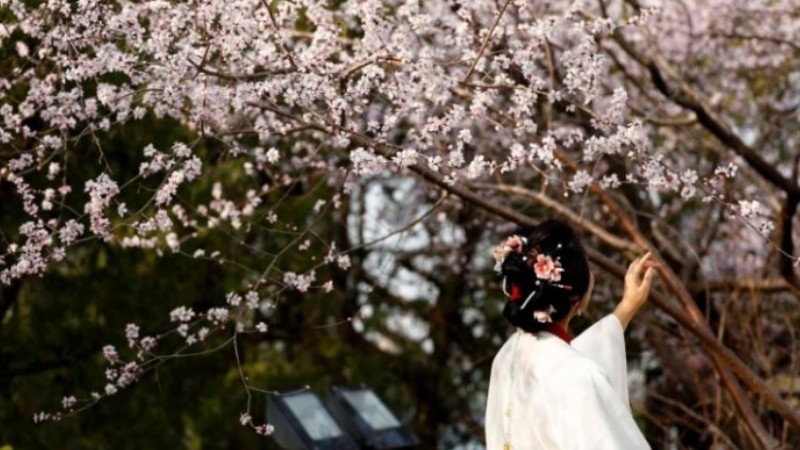House hearing protest highlights growing call against U.S.-China conflict: SCMP
HONG KONG, March 11 (Xinhua) -- An anti-war group's protest disrupting tough-on-Beijing rhetoric during a recent U.S. House hearing has highlighted growing domestic call against bilateral conflict, the South China Morning Post (SCMP) reported Friday.
Less than half an hour after Mike Gallagher, chair of a newly-formed select committee on the Communist Party of China, framed the U.S. struggle with China as "existential", a woman dressed in pink held up a sign bearing the words "China is not our enemy," and her phrases like "we need cooperation, not competition" made it through to the prime-time audience.
Seconds after law enforcement ushered her out of the room, a man stood up holding a "Stop Asian hate" sign. "This committee is about sabre-rattling," the protester declared. "It's not about peace. We need cooperation."
The woman was later identified as Olivia DiNucci, an organizer with Code Pink, a women-led anti-war group that made its name advocating against the Iraq war. The man was identified by Code Pink as Hector M, a Washington DC resident and friend of DiNucci.
Both protesters were arrested, according to Code Pink co-founder Jodie Evans, an anti-war activist who co-founded the organization in 2002.
"China is not our enemy" is one of the three campaigns featured on Code Pink's website, along with "Peace in Ukraine" and "War is not green".
Evans started the China campaign about three years ago when she saw media coverage of the country increasingly frame it as an enemy, reminding her of narratives surrounding the Iraq War.
"The messages of our (China) campaign are that we need cooperation for the planet and the people on it...and we have to stop Asian hate because that makes Asians around the world vulnerable," she said, adding that "it's not about China, it's about war."
The disruption on last Tuesday, the third China-themed event Code Pink has interrupted in recent months, has sparked an influx of new volunteers for the organization, particularly Asian-Americans, according to the SCMP report.
Code Pink joins a small but growing list of actors publicly calling for increased dialogue between the U.S. and China to reduce the risk of bilateral conflict.
Some have called for an end to the "self-fulfilling escalatory spiral" in which politicians speak harshly on China to avoid appearing weak to voters, said the report.
Photos
Related Stories
- China opposes U.S. placing Chinese entities on Specially Designated Nationals List
- Chinese FM holds phone talks with U.S. secretary of state on bilateral ties
- China opposes U.S. placing 36 Chinese entities on export controls "entity list"
- China takes legal action against U.S. over chip exports
- China refutes U.S. ambassador's wrongful remarks on human rights issue
Copyright © 2023 People's Daily Online. All Rights Reserved.









